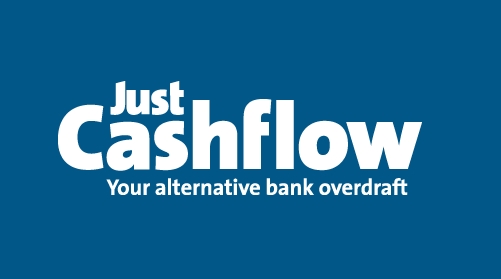The sudden arrival of COVID-19 has changed the world we live in and SMEs have had to deal with unprecedented problems such as having to shut up shop with virtually all income disappearing overnight. As someone with four decades of experience of running businesses, or helping them to invest and grow, I keep getting asked about the impact the Covid-19 crisis is going to have on UK SMEs.

In the short term the Government has stepped in to support businesses with a range of support measures such as the Coronavirus Interruption Business Loan Scheme (CIBLS) and the Bounce Bank Loan Scheme (BBLS). Additionally, VAT payments between 20th March and 30th June were able to be deferred – providing SMEs with some valuable breathing space. Now attention is rapidly shifting to what the post Covid-19 world is going to look like and how these changes will impact SMEs who have a vital role to play in the economic recovery.
I want to focus on one thing that will never change and which is vital to any businesses’ success – cash flow. Let me take you back some 35 years. I clearly remember being enrolled on a course for financial directors titled ‘Cash is King’. I sat there, wet behind the ears, listening eagerly to the Professor carrying out an incredible educational course that showed me the importance of cash to a business. At the very start he announced three important lessons for the group.
- Cash is King
- Cash is always King
- If in doubt refer to lessons 1) and 2)
If there’s no cash flow, it doesn’t matter how profitable you are, you will go out of business. It was a lesson I have never forgotten and the premise on which Just Cashflow was formed.
It’s well documented that cash flow issues are the main reasons why businesses fail – but not well documented enough to stop an increasing number of SMEs falling into the ‘cash flow trap’. We ran a survey asking SME owners what they wished they had known more about before setting up in business and the number one answer was ‘cash flow management’.
It is inevitable that businesses will experience bumps in the road and one of the common ones is not having the cash to pay large VAT, PAYE and Corporation Tax bills. You have no option but to pay up on time so it’s good advice to set up a separate deposit account. Work out your average VAT, PAYE and Corporation Tax for the previous year. Divide it by 12 and set up a standing order for that amount to go out monthly from your current account to the deposit account. This money will give you peace of mind when the tax bills arrive. If you find you need to dip into your deposit account, then you know you have cash flow issues.
Above I spoke about the VAT deferment scheme. While this was obviously welcomed by SMEs, the temptation is obviously there, in these unprecedented times, to use the money saved to support other business demands. This is totally understandable but the VAT has to be repaid by 31st March 2021 so you need a plan to ensure you will have that cash available.
At this point I totally appreciate that you may be asking whether I really understand the financial pressures SMEs are under and the number of plates business owners have to keep spinning. Believe me, I do and I have the scars to prove it.

For many small businesses, efficiently managing cash flow can mean the difference between success and failure. With a bit of planning, you can manage your cash flow so that you’re covered for slow periods long before they even happen.
- Monitor your cash flow
You may think of a cash flow forecast as something you include with a business plan, or something you only bother with when you’re seeking funding, but it’s an incredibly useful thing to do on an ongoing basis. It lets you plan ahead and predict when you might run into difficulties. Month-on-month forecasting will let you know your financial position and make sure you have enough income to cover your outgoings. Ensuring this balance is often difficult, as your customers and suppliers have different priorities.
Ensure you monitor your KPIs and analyse them on a regular basis. This will provide you with the information you need to monitor cash flow, profitable sales and overheads.
- Make friends with your accountant
Do you only speak to your accountant once a year, about a week before your tax return is due? Do you hand over the accounts and then accept the results without asking any questions? If so, then you’re not getting the full value from the service.
Accountants can be a fantastic source of money-saving information and advice – why not ask whether there are any ways you can reduce your tax bill, or whether there are any tips specific to your area of business that you might not be aware of? Ask for a consultation to identify areas for improvement.
On a related note, your accounts aren’t due until 9 months after the end of the accounting period – so there’s no reason not to send them to your accountant well in advance of the due date so that you can plan ahead! He or she won’t charge you any extra for being well organised, and you’ll have your figures well in advance and be sure to avoid a late filing penalty and interest on late payment.
- Apply for credit before you need it
Now, I’m not saying you should apply for credit if you don’t need to – but if you know that you will need to in the foreseeable future, you’d be best not to leave it until crunch time to put in the application. You’re far more likely to be approved for credit when things are going well, and you also have the luxury of time to plan ahead and research, rather than just having to go with whichever facility is available to you at short notice.
It is so important to have a funding solution in place, and revolving credit can be the ideal solution. This is simply finance to which you have approved access. You can draw down on these funds when the need arises and normally you will only pay interest on the amount you have borrowed. When you pay back, your credit available goes back to the original amount.
The advantage of revolving credit is that, unlike some other forms of business finance, it doesn’t come with a set repayment plan that might not fit with the way cash flows in and out of your business.
Traditionally, a revolving credit line has been a business overdraft provided by your bank, but access to this type of business finance has been steadily reducing. Alternative lenders such as Just Cashflow have recognised this and we have introduced our Revolving Credit Facility that works in exactly the same way as a bank overdraft and allows growing companies to smooth out the peaks and troughs. Interest is charged on a daily basis and there is no long-term commitment, so it provides complete flexibility for the borrower.
There are many things Covid-19 will change but understanding and managing the cash in your business isn’t one of them.
You can contact Just CashFlow via their website www.just-cashflow.com
or call them directly +44 (0)121 4185795



